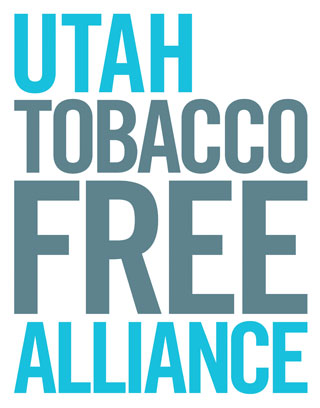The community advocacy and education workgroup advocates for policies that will prevent Utahns from ever starting to use tobacco, help those who do use tobacco to quit, and lessen the burden of tobacco on our health care system.
Strengthening Zoning Policies
In Utah state code, businesses that primarily sell tobacco products must get a tobacco-specialty license from their municipal/county business licensing office. However, with this license comes zoning restrictions that prohibit those business from operating within 1000ft of a community location (school, church, playground etc.), and 600ft from other tobacco shops and residential areas. The rationale for this policy is that by distancing these businesses from places that children frequent then young people will be less likely to enter and purchase tobacco or be exposed to tobacco advertising.
But there is a loophole in the law. To be classified as a tobacco specialty store 35% of the sales need to be from tobacco products, but a business would need to apply for this license before they begin to sell and therefore would not be able to show evidence of where their sales are coming from. As such it is largely on the retailer’s honor to indicate on their license application that they are going to be a tobacco specialty store. Some businesses have been dishonest in their application, stating that they are a grocer or a convenience store when they in fact are selling mainly tobacco and are operating close to a community location. Though there are provisions in the law saying that municipalities can set further requirements on applying businesses, multiple business license offices have requested that there be a change in the state law to give them increased and detailed powers to ensure compliance.
.
Smoke-Free Salt Lake City Airport
UTFA worked with Salt Lake City and advocacy groups to make the Salt Lake City airport 100% smoke-free indoors. In 2016, Mayor Jackie Biskupski and the Salt Lake International Airport announced a plan to phase out the smoking rooms at the airport by January 1, 2017. In addition, designs for the $1.8 billion Terminal Redevelopment Program were changed to no longer include smoking rooms. This policy change protects the rights of airport employees and travelers alike to breathe clean air in Salt Lake City's airport.
Electronic Cigarettes
The use of electronic cigarettes in Utah, especially among Utah’s youth, has increased dramatically in recent years. UTFA is concerned about the potential public health issues that arise from e-cigarettes and their growing popularity, including the flavors of these products that are attractive to youth, exaggerated claims of safety, the fact that e-cigarettes are not subject to the same taxation as other tobacco products are, and the potential for addiction to nicotine among the youth who use these products.
UTFA has supported efforts at the state level to regulate electronic cigarettes and to tax these products as tobacco products.
Tobacco 21
UTFA worked with the cities of Lehi and Cedar Hills to pass local tobacco 21 ordinances in February 2019 and state legislators to enact HB 324 a statewide law gradually increasing the legal age a consumer can purchase tobacco from 19 to age 20 effective 7/1/2020 and age 21 effective 7/1/2021.
For more information on this topic, please visit the Campaign for Tobacco-Free Kids website.
LINK: http://www.tobaccofreekids.org/what_we_do/state_local/sales_21













